We have had a bad situation with regard to getting severe weather alerts locally. For a while, both the Cullman and Arab NOAA Weather Radio transmitters were down. The Arab transmitter is the only backup for the Cullman one. A few days ago, the Arab transmitter was restored to service. I really want to thank the people who worked to make that happen, and I can only imagine that people in the National Weather Service are more frustrated by this situation than anyone.
It is confusing for the general public.
So the purpose of this post is to teach people a little more about how NOAA Weather Radio works, and what you can do if we have an unfortunate situation like this from time to time.
First off, I'd like to say that buying a weather radio is still a great investment. I've had the same one for more than a decade, and it works great. Basically all you need to do, once you have it properly programmed, is to change the batteries once or twice a year. The batteries are only for backup in case of a power failure. And I've had that happen, where the power went out before a warning was issued, and I was glad I kept fresh batteries in there. The model I use is Midland, and I've always heard good things about even their newer models. But of course, if you find a better one, more power to you. I had a more expensive one at one time, and believe it or not, a storm took it out. I probably should have kept it in the basement instead of upstairs. That was a long time ago, and I really don't think it was worth the money to begin with. It was fancier, and you could program out certain alerts if you didn't want to get them. Unless you want extra features like that, I'd say save your money and buy a Midland model. I know plenty of people at the poverty level who spend more than the cost of a Midland radio for their monthly Internet/Cable TV/phone service. And this is a one-time purchase that will last you several years, unless you have bad luck like I did with that expensive one, and a window that was barely hanging together to begin with in a cheap old house.
And also, I'll just get this out of the way: We are in a tough situation for the moment. If you are worried about any more storms going severe tomorrow or Monday, before we get a shot of dry, milder air and minimal (if any) rain chances for several days, then I need to give you some good advice you can use, before I go into all these technical details.
So here's the low-down: The only weather radio transmitters that alert for Cullman County are the one in Cullman, the one in Arab, the one in Oneonta, and the one in Huntsville. It used to only be the Cullman and Arab transmitters, but it appears that coverage has improved since I last checked.
And as I was writing this, the Cullman transmitter started working again. I turned on my weather radio, since I got a warning from Mississippi the other day, and was curious as to what transmitter I was getting on the same channel (Channel 3) that would cover that area. And as of right now, 8:30 PM Saturday, the Cullman channel of WWF66 162.45 megahertz is coming in clear as a bell again. I hope it stays that way, but they may just be testing it before they announce it as being back online.
So again, thank you to the people who work so hard to get these things back working again. I would imagine it is quite a job, with a relentless past week or so of so many rounds of strong storms that did damage.
But for future reference: The best backup I know of is WeatherCall. It has been around a long time, and it performed well even during that worst-case-scenario superoutbreak of tornadoes in 2011. It works with land phone lines as well as cell phones.
There are various cell phone apps you can try out if you are so inclined, but I don't know of any I'd vouch for as being especially good. There used to be a great app from Weather Decision Technologies, where it used the GPS in your phone to be like a weather radio that only alerted you if you were in the polygon. For whatever reason, it appears to be extinct now. Sometimes the "progress" of technology is not real progress at all. A lot of times, we go backwards, while people think they are making improvements. I miss that app being around.
The only apps I know of that might help are affiliated with television stations, and I don't trust all the clutter and baggage that comes with even the TV stations that do an especially good job with the weather part. So you can comb through those if you like, but I am not going to recommend any here.
If you can't afford a backup service like WeatherCall, then my best advice would be to find a radio station you trust, and leave it playing while you go to sleep. I think that has a lot better chance of waking you up than a television station breaking in for severe weather coverage. A lot of stations even cut in with that really abrasive EAS tone that you'll hear if your weather radio is already playing before a new warning comes out. I knew a guy one time who recorded that sound and used it as his alarm clock, because it is almost impossible to sleep through, unless you're in a coma.
The National Public Radio stations around here are the most reliable for that. All the stations that play other music I like have let me down at one time or another, but I will say that some of the better regular stations over the years have been 105.7 Real Country , Live 95 Cullman, and Fun 92.7 Arab. But like I say, sometimes I've been disappointed in even these stations. It seems like there were some other really good stations when I lived in Huntsville, but I cannot remember them for sure. Besides, things could have changed since I lived there. I've included the links to these stations I do trust more, their websites, so that if they don't cut in for severe weather, you can complain to them. I wish more stations did. One of my favorite stations from Huntsville, if not my favorite, was Rocket 95.1 FM. And they only told about severe weather if it was a really big deal. So I couldn't listen to my favorite music while keeping up with the weather, if they had dismissed classes and I was just posting updates on the weather blog and was trying to catch every warning for North Alabama and Southern Tennessee. I'm not linking to them because they have made a decision to only report weather if it is extra-dangerous. These other stations make it sound like they care about keeping you up to date on the weather. So they need to hear from listeners if they don't live up to that. And maybe they'll either step up their game or quit advertising it. If you do complain to them, please be polite. And hopefully you won't have to.
The only stations I would count on, though, are the classic music stations. Even if you don't like NPR news or classical music, it is pretty easy music to sleep to. And it is quite a contrast when they cut in for a severe weather alert. And they're going to do that. Because it is public radio. They'd get in trouble if they didn't. You might only get the initial warning, but it is likely to wake you up. And then you can get more details from another source. Or if the warning is for your immediate area already, then you can take shelter and get more information from that safe place - take your cell phone, laptop, or whatever with you.
The NPR station if you're closer to Huntsville is 89.3 FM WLRH. The NPR station if you are closer to Birmingham is 90.3 FM WBHM.
I'm in the process of contacting them and finding out which to listen to for Cullman, since it's right between the two cities. It may be that both are okay. I remember listening to them on 90.3 FM when I lived in Southern Cullman County years ago, same time period as I had the weather radio hit by a storm. But I am very weather-alert. So I don't remember if they were giving warnings for other counties nearby or if it specifically included Cullman County. I also flipped stations a lot for a variety of music. And the specific event I was using it for was a landfalling hurricane. So everybody was talking about it.
Edit - August 14th Monday 8:18 PM - I've now talked to someone from both classical stations. The one in Birmingham, 90.3 FM WBHM, covers Cullman County. The Huntsville station, 89.3 FM WLRH only covers Madison, Morgan, Marshall, and Limestone Counties. The Birmingham station has a coverage map online. Cullman, Walker, and Winston Counties should tune to it during severe weather. This is the best I know for now. Probably going to go back at some point later this week or next week and clean up this post, make it organized into a better-structured essay, and repost it with a lot of the fat cut out. This is the raw version. I just thought it was better than trying to explain stuff on the fly to individual people.
One idea I learned from Tim Coleman, the professor at UAH who is sort of their severe weather expert, along with Kevin Knupp, is that if it's easy for you to fall back asleep, you could set an alarm every hour or so, if you already know there is a severe weather threat, and just check the weather, set another alarm, go back to sleep. That might work for some people, but seems like kind of a pain for the average person.
One great silver lining is that we all have Wireless Emergency Alerts on our cell phones. They will report Tornado Warnings, Flash Flood Warnings, and Amber Alerts. They will only report Severe Thunderstorm Warnings if it is deemed a particularly dangerous situation, which usually means hurricane-force winds are expected, or the hail is big enough to give somebody a concussion. And for a long time, they did not report Severe Thunderstorm Warnings at all.
A lot of what we've been reminded of lately is that the science and the communications process is still far from perfect. It is great compared to what we had even 10, 20, or 30 years ago. But things still slip through the cracks. That's just life. When the windows were blown out of the Cullman Library recently, there was no warning polygon that included the city of Cullman. A Severe Thunderstorm Warning had been issued earlier for Western Cullman County, but it had not been extended to include the city of Cullman. So that was an unfortunate situation where unless somebody was aware of the weather coming in from the West, and made their own judgement call, they really wouldn't have known to take shelter anyway. Even though the damage started before people knew to take shelter, I was glad to see that the staff quickly rushed everyone into the safest part, in the center of the building. So no one was hurt.
And before you go blaming the National Weather Service for missing a warning, please keep in mind that this summer has been unusually stormy and tough to predict. The storms of summer usually are not as organized as they have often been this particular summer. And the Weather Service doesn't want to give too many false alarms and run people crazy. Because people will stop paying attention when it really is serious. If they've had a Severe Thunderstorm Warning out for a storm for a while, that looks bad on radar, but are not getting any reports of damage, then they might not extend that warning into the next location, if it looks the same on radar, and they are not getting reports that would justify keeping a warning going. It can be a very difficult judgement call. And people have complained for years about too many warnings.
A lot of people I know, in fact most people I know, do not even care about Severe Thunderstorm Warnings. A lot of people think I'm overreacting when I take shelter from a Tornado Warning, without waiting for it to be confirmed first. And I have had little to no luck changing people's minds. If you're reading this, please understand that a Severe Thunderstorm Warning is issued only when a thunderstorm's winds are believed to be at least 50 knots/58 miles per hour or the hail is thought to be at least an inch in diameter/the size of a quarter. Either one of these things, or both of them together, is thought to be a threat to life and property. And once in a while, these storms will produce a tornado with very little or no more advance warning. An extreme example of that would be in November 1989, when a major tornado hit Huntsville out of a Severe Thunderstorm Warning. They actually broke in live on weather radio to broadcast the upgrade to a Tornado Warning, because the situation was so serious. And if you go back and watch the coverage on TV of that storm, some of the better broadcasters said that even though it was a Severe Thunderstorm Warning, they believed the storm could be producing a tornado. And these days, if you read all the text of some Severe Thunderstorm Warnings, you'll see a tag that reads "TORNADO . . . POSSIBLE." So there are a lot of problems here, and some of it is people not understanding that a Severe Thunderstorm Warning is meant to be taken seriously.
And usually the severe thunderstorms we get in the summer will damage trees and power lines, but rarely do any structural damage, unless a tree or power line falls on the structure. So some of the stuff we've had happen lately is anomalous. Our weather patterns this summer have been weird. Every time I thought it was going to settle down into a normal summer pattern again, I'd go away from it for a few days, and then I'd see another bizarre setup that you just don't expect to see in the summer months around here.
And it has been even weirder in other places. The F-3 tornado that hit the Pfizer plant in North Carolina was a very rare event. And in much the same way, even on a stormier summer day, you don't often hear of a storm around here blowing the windows out of a library, or another strong public building. It's actually sort of rare for a summer storm to blow windows out of a regular house. Like I say, usually in the summer, all we have to worry about is tree or power line damage, unless we get a landfalling hurricane or tropical storm that can spin up some tornadoes. This summer has been a doosie.
Anyway, here is a primer on how NOAA Weather Radio works around here.
Tonight I saw a post by a lady who thought that she could overcome the problem of the transmitter being down by programming in SAME codes for all the counties she wanted to get alerts from.
She is not alone in that misunderstanding. When my great-grandmother was still alive, her daughter got her weather radio programmed by a broadcast meteorologist I like, as a meteorologist and as a person in general. But he made this same mistake.
Here's what he did. He was programming a radio for rural Walker County.
And he set it to Channel 7.
If you followed that link, you'll see what counties can be picked up by that transmitter. Now, he did program in the SAME code for Tuscaloosa and of course for home base, Walker County. But he also programmed in SAME codes for other counties like Winston, Fayette, Marion, and Lamar. And since those counties are not covered by that transmitter of 162.55 mHz in Birmingham, the radio was not going to give alerts for those extra counties to the West. My great-grandma was living in a mobile home at the time and had to ride a short distance to get to a storm cellar, or a few miles if she was going to use her daughter's basement.
So the intention was good, but this wasn't going to work. Even though a good meteorologist set up the radio. He made a mistake.
The best way to set up her weather radio was to tune it to the Winfield transmitter. And then if she didn't want to get alerts for every single county covered by that transmitter, she could use the SAME codes. If you don't put in any SAME codes, you will actually get alerts for more counties. The SAME codes were developed so you could get fewer alerts, for only the counties you want, that are already within the counties covered by that transmitter.
I'm not joking. If you want to get alerts for counties covered by more than one transmitter, then you'll have to have two weather radios. And when I lived on campus in Huntsville, that's what I did. I did not want to miss anything in North Alabama or Southern Middle Tennessee. So I had one set to the Huntsville transmitter and one set to the Arab transmitter on the desk in my room. But that's the only way to cover a huge area, beyond what one transmitter picks up.
In case you're wondering what happened with my kinfolks, I tried to explain the situation to them and fix it. They sort of listened and considered I might know what I was talking about, and let me change it. Unfortunately, the reception was weaker from the Winfield transmitter than from the Birmingham one. So they finally changed it back and decided that the meteorologist they saw on TV must have known more of what he was talking about. They thought I had messed it up. Really there were other places in the house they could have put the radio for better reception. It was a really big mess, and I was not able to sort it out. But that Winfield transmitter was the only chance to get alerts for all the counties that she wanted to.
It looks like now they call SAME codes FIPS codes. SAME stood for Specific Area Message Encoder. FIPS stands for Federal Information Processing System.
Here is a link to get information about Weather Radio transmitters and FIPS codes around here. If you scroll to the lower map in this link, you'll see that you can click around in Central Alabama as well and see what they've got. That's how I found out that Oneonta's transmitter could reach Cullman County now.
Hope this helps. I personally missed the memo that the Cullman transmitter was down and was surprised by a severe thunderstorm on Sunday, even though once I woke up and looked at the radar, I saw a warning had been issued well in advance. So this is a real problem that comes up sometimes. It is rare for it to be a problem in the summer. So I thought I would write something off the top of my head, but try to be thorough, and clear up some misunderstandings while I was at it.
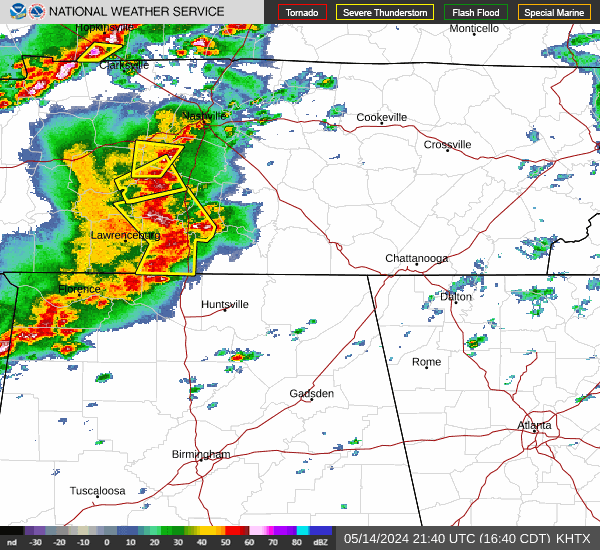
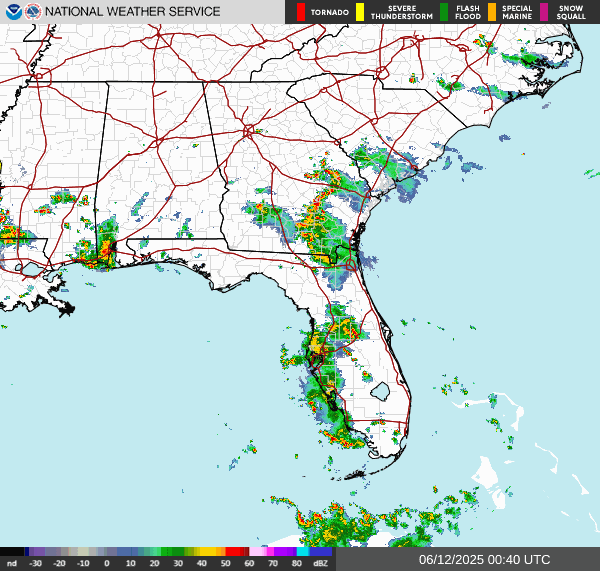
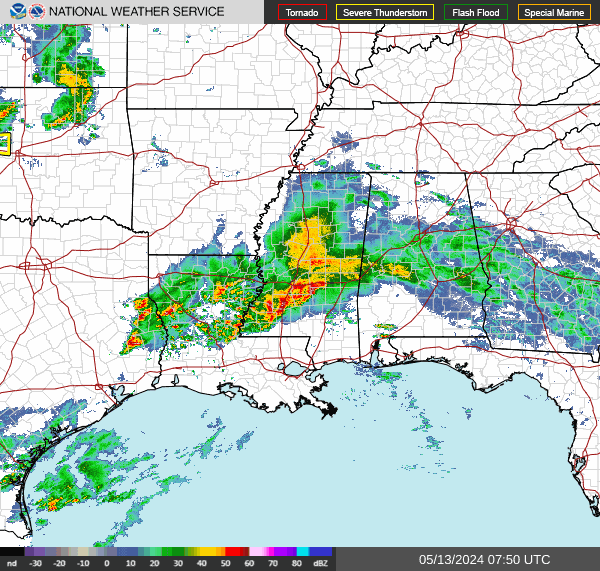
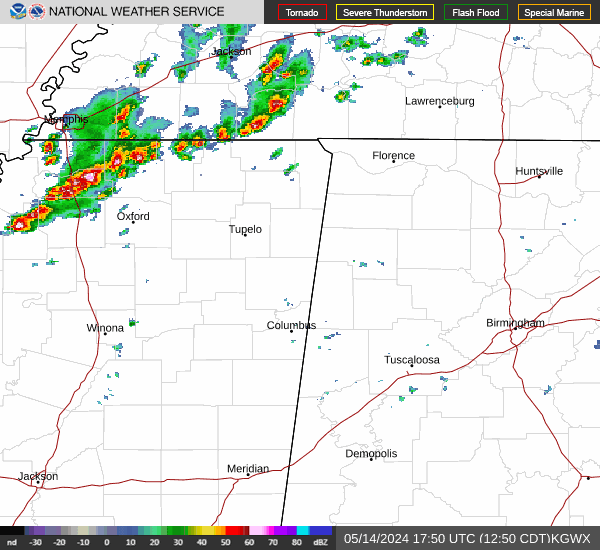
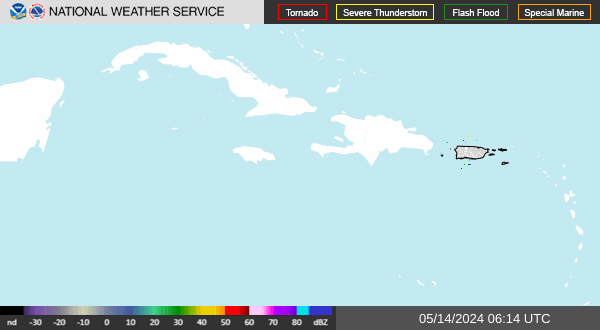



No comments:
Post a Comment